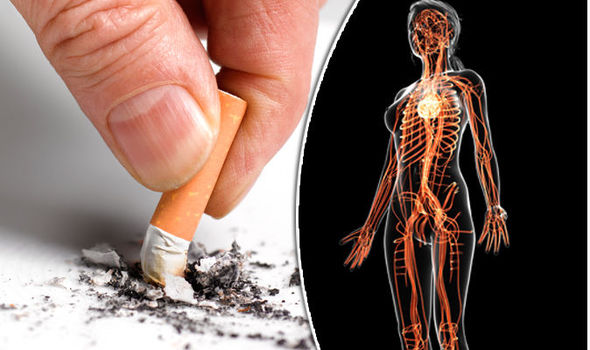If you have been smoking for a while, you might wonder if quitting is worth it. Maybe cravings and nicotine weaning prevent you from really thinking about it. And you end up saying to yourself: "The damage is already done, will it really make a difference? "
Absolutely. Your body has an incredible ability to heal itself, and it's happening faster than you think - less than half an hour after turning off the last cigarette. And keep in mind that you are much more likely to succeed if you make a plan to manage your cravings, especially during the first few weeks.
Here's what happens to your body when you quit:
After 20 minutes
In less time than it takes to prepare a good meal, your body is already better. After 20 minutes, your pulse and blood pressure begin to return to normal, improving your blood circulation. As a result, your hands and feet warm up and return to their normal temperature.
After 8 hours
At the end of a working day, your blood contains half of the nicotine and carbon monoxide. Why is it important? Because carbon monoxide is a chemical found in cigarettes and eliminates oxygen in your blood. This causes muscle and brain problems because they do not get the amount of oxygen they need.
But as the rate of carbon monoxide goes down, the body regulates its oxygen supply.
On the other hand, it is likely that you already feel cravings and doubts and plan to resume the cigarette. This is completely normal. But know that they usually last only 5 to 10 minutes. Try to find ways to distract yourself until this feeling disappears.
After 24 hours
If you smoke a pack a day, you are twice as likely to have a heart attack than a non-smoker. But spend a whole day without a cigarette and you will reduce your risk. It is enormous.
After 48 hours
At this point, the nerve endings begin to regenerate, and your sense of taste and smell improves.
In addition, your lungs expel mucus and nicotine from your body.
This is also the time when the most difficult withdrawal symptoms appear. You may feel anxious, dizzy, hungry or tired. You may also have a headache or feel depressed. Do not give up, go to places where smoking is forbidden and try to amuse yourself ...
After 3 days
At the end of the third day, you breathe better and have more energy. Your lungs are starting to recover and will continue to improve.
After 2 weeks - 3 months
It's good, you've overcome the most difficult period. You are making tremendous progress and can do more because your lungs are stronger and your blood circulation has improved. You can play sports without feeling short of breath, and your risk of heart attack continues to drop.
After one year
Your risk of heart disease is now at half what it was a year ago.
After 5 years
Your chances of having a stroke and cervical cancer are now the same as those of a non-smoker. You are half as likely to have cancer of the mouth, throat, esophagus or bladder.
After 10 years
Compared to someone who is still smoking, you are half as likely to die of lung, larynx or pancreatic cancer.
After 15 years
The risks of heart disease are the same as those of a person who has never smoked. Your body has made a huge recovery to heal.
Although smoking is very harmful to the human body, the body is able, over time, to recover, recover and heal. It's time to quit and act while there is still time.....


